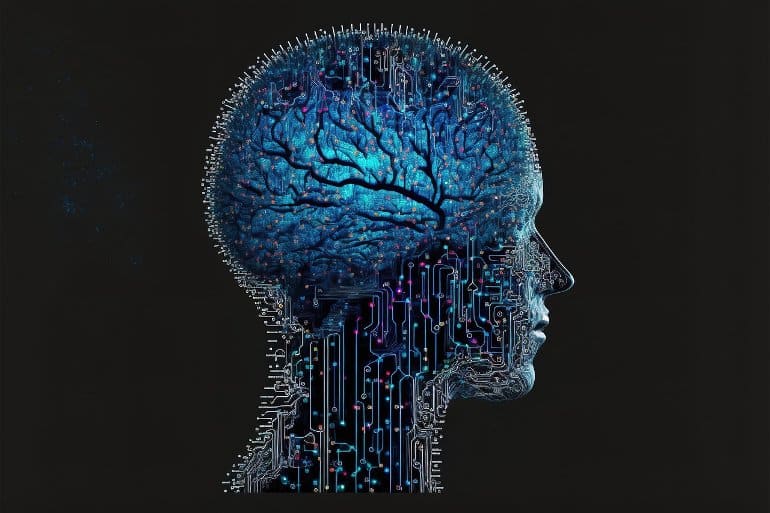Summary: An AI model of gene regulation in the brain identified thousands of mutations associated with neocortical development and the facilitation of mathematical abilities.
Source: NIH
Researchers from the National Institutes of Health (NIH) used computational modeling to uncover mutations in the human genome that likely influenced the evolution of human cognition.
This groundbreaking research in human genomics could lead to a better understanding of human health and the discovery of novel treatments for complex brain disorders.
The study is published in Science Advances.
Human cognition is a defining feature of human evolution, setting us apart from other primates. Despite over 100 million mutations since the human-chimp split, only a small fraction has been found to be significant.
To navigate this vast landscape of genomic changes, researchers from the National Library of Medicine (NLM) and the National Cancer Institute (NCI) created an artificial intelligence (AI) model of gene regulation in the human brain.
The model identified thousands of mutations likely impacting neocortical development and facilitating the acquisition of mathematical abilities through altered brain gene regulation mechanisms.
When the human genome was sequenced in 2001, researchers learned that only 2% of the sequence of our genome is used for coding genes that, in turn, translate into proteins. This is the sequence information that is being used by every single cell. The function of the other 98% of our DNA—often referred to as “noncoding DNA”— remains relatively unknown. It is believed that 95% of disease associations hide within these noncoding parts of our genome.

The research group of Ivan Ovcharenko, Ph.D., senior investigator in the Computational Biology Branch of NLM’s Intramural Research Program teamed up with the research group of Sridhar Hannenhalli, Ph.D., senior investigator in NCI’s Center for Cancer Research to create an AI model that measures the effect of noncoding genome mutations on human brain function and development.
This led to the identification of a group of noncoding mutations disrupting brain regulatory pathways and potentially causing various complex brain disorders, including autism.
“There are treasure islands within the sea of noncoding DNA in the human genome that are critically important for regulating human genes,” said Dr. Ovcharenko.
“Mutations in these regions are largely benign, but there is a class of mutations which detrimentally impact the function of regulatory regions in the brain and affect cellular activity there. By being able to address the impact of individual mutations, we are advancing towards understanding the mechanism of complex diseases and disorders and paving the way for the development of novel therapeutic approaches.”
According to study authors, this fundamental work in human genomics is likely to have a long-ranging impact on human health and advance the research of the complex nature of the human brain.
About this AI, cognition, and neurodevelopment research news
Author: Press Office
Source: NIH
Contact: Press Office – NIH
Image: The image is in the public domain
Original Research: Open access.
“De novo human brain enhancers created by single-nucleotide mutations” by Shan Li et al. Science Advances
Abstract
De novo human brain enhancers created by single-nucleotide mutations
Advanced human cognition is attributed to increased neocortex size and complexity, but the underlying evolutionary and regulatory mechanisms are largely unknown.
Using human and macaque embryonic neocortical H3K27ac data coupled with a deep learning model of enhancers, we identified ~4000 enhancer gains in humans, which, per our model, can often be attributed to single-nucleotide essential mutations.
Our analyses suggest that functional gains in embryonic brain development are associated with de novo enhancers whose putative target genes exhibit increased expression in progenitor cells and interneurons and partake in critical neural developmental processes.
Essential mutations alter enhancer activity through altered binding of key transcription factors (TFs) of embryonic neocortex, including ISL1, POU3F2, PITX1/2, and several SOX TFs, and are associated with central nervous system disorders.
Overall, our results suggest that essential mutations lead to gain of embryonic neocortex enhancers, which orchestrate expression of genes involved in critical developmental processes associated with human cognition.






